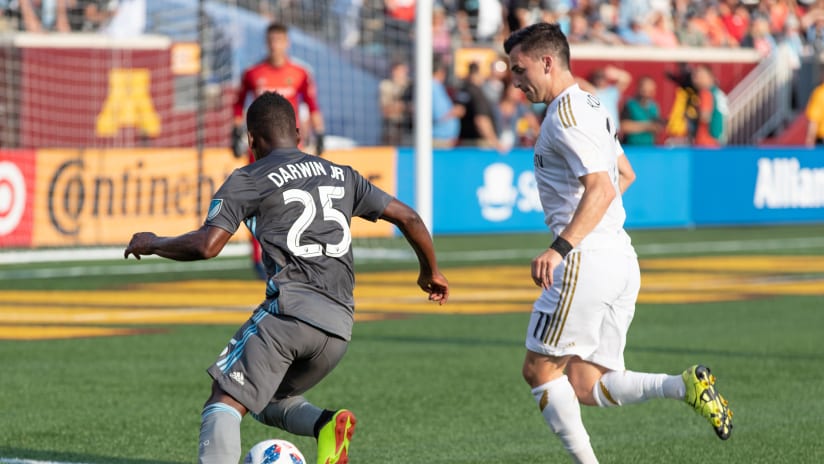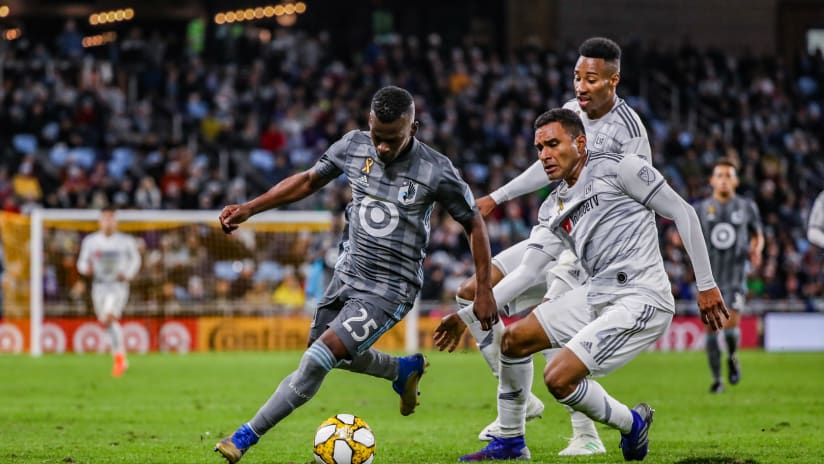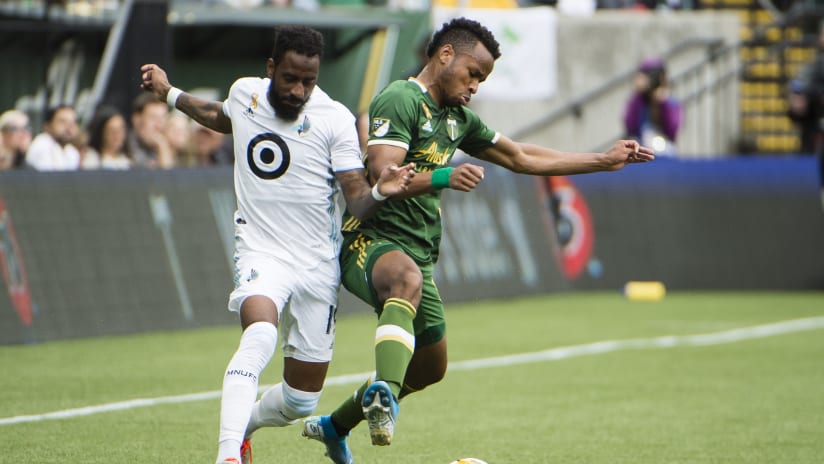There’s nothing inherently wrong with highlights. Every time Darwin Quintero chips a keeper or Bobby Shuttleworth lunges just in time to tap a ball away from the mouth of goal, a highlight fairy gets her wings. They’re beautiful, these moments when pure skill and years of hard work combine to give us a brief glimpse at the edges of what’s possible for a skilled athlete.
But they also represent fractions of a second in a 90-minute game in a season with 34 games. That’s 3,060 minutes of soccer — not including stoppage time — and it’s anything but back-to-back highlights.
As Head Coach Adrian Heath replied when asked about Shuttleworth’s second penalty save of the 2017 season to seal a victory against FC Dallas, “That’s what he gets paid to do.” To us, highlights are the acme of the sport, but to coaches, they’re fleeting moments that can’t be relied upon. As much fun as a bicycle kick goal or a rocket from more than 40 yards out can be, coaches value a very different set of skills when they’re looking at players.
For Goalkeeping Coach John Pascarella, it begins with positioning on the field because everything else a player does (or doesn’t do) stems directly from that. It isn’t limited to goalkeepers, either. Looking back at the team’s 4-2 loss to Vancouver Whitecaps FC, he notes that Vancouver’s success on the counterattack came down to positioning.
“The reason we got caught on the break isn’t because we’re slow,” he says. “If we would have been in the right starting spots, if guys’ positions would have been better, if the shape of the team would have been better, if our understanding of where we should have been in those situations was better we would have never gotten caught on the break. That is a big deal for me.”
Heath echoes that sentiment when he touches on what makes a good defender: “Can you spot danger? You can’t quantify it, but when you watch certain defenders people say, ‘It always seems to hit him on the head.’ Well yeah, because he is always in the right spot. It is little things like that. I have played with people who are incredibly athletic, but never get a block in, never get a head in and never get a chance to defend it because they are always in the wrong spot. Sometimes it is not all about what you do with the ball. It is the positioning that you get yourself in.”
As anyone who’s watched a decent amount of soccer can attest, a bored goalkeeper is a happy goalkeeper. Eight times out of 10, a keeper making a save is only being forced to act by a defensive breakdown in front of him — and that breakdown was likely precipitated by another one farther up the field. In essence, the drama of the game — the stuff that those of us who watch it value most — is something that coaches would rather not experience. It’s a very Heideggerian viewpoint: a player’s highlight-worthy skills only become present to us when the fabric of the game has broken for the defense.
This is one of the reasons that goalkeepers can improve as they get older, says Pascarella. Height, length, reaction time — these are qualities that can get a keeper out of a jam, but honestly, it’s better not to get in the jam in the first place. Staying out of trouble comes from a better understanding of the totality of the game in front of them. “The goal is still the same size and their physical qualities are probably diminishing a little bit, but they’re so much more experienced and so much better at reading those little cues that they put themselves in the right spot and make it easier,” says Pascarella.
Positioning, though, is not just about defense.
“It is alright being a really good passer of the ball if you’re a midfield player, but if you can’t get yourself in a spot to receive it to pass it then it doesn’t make any difference,” says Heath. “If you’re a midfield player who is a good continuity player, you have to be able to find the right spots on the field. If I am always next to you, when I am going to show them my little passing ability? Because I am always under pressure. Now if I can get myself in a spot where I am away from people, then the game opens up. Those are the things people don’t see at times.”
Another seemingly humble skill prized by coaches is a player’s first touch. Heath lays it out rather succinctly: “If you don’t have a good first touch you don’t get a second one, invariably.”
Assistant Coach Ian Fuller went into a bit more depth, focusing in on Darwin Quintero and the quality not just of his first touch, but his first touch when he’s under pressure. It’s a situation the Loons’ attacker finds himself in almost constantly since his scorching run of form has had opposing defenses throwing multiple defenders at him.
“The balls that we play him aren’t the most quality balls, especially on the turf,” says Fuller. “His first touch is generally exactly where he wants it. I think that is a big thing in our country that we don’t spend enough time on — the first touches, particularly under pressure. Then his first touch away from pressure is just excellent. Then you give him a foot and he is gone. His first five to 10 yards are incredibly quick.”
Fuller emphasizes that Quintero’s level of ability with that first touch is not just talent, but rather the product of hard work. It comes from reps and experience and also a hunger and drive to keep improving along every vector.
“[It’s] time when you’re a really young kid and hours and hours of banging the ball off of a wall and touching it to the right, banging it back and touching it to off to the left, working on both feet and receiving poor balls,” he says. “Darwin has clearly done that for years and years and it is paying off for Minnesota.”
Highlights are what the crowds live for and there’s nothing wrong with that. But the fundamentals of positioning and touch endure across the span of every season, minute by minute, game by game. So listen up you kids practicing elasticos and Maradonas and rabonas: Take some time out from imagining yourself nutmegging Sergio Ramos to win the World Cup and spend a little time with a humble wall.





